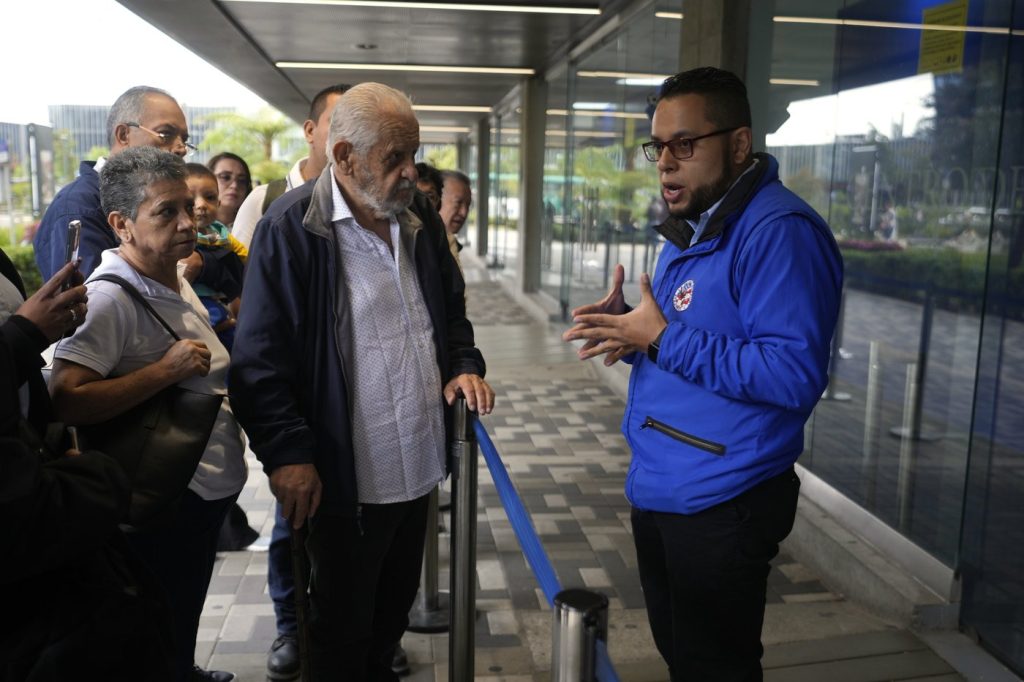On Monday, visa appointments at the U.S. Embassy in Bogotá, Colombia, were abruptly canceled due to a diplomatic dispute surrounding the repatriation of Colombian nationals. The situation escalated following a statement from Colombian President Gustavo Petro, who announced his decision to refuse landing rights to U.S. Air Force planes carrying deported Colombians. This action marked a significant reversal from his earlier approval of the flights.
As a result, dozens of Colombians gathered outside the embassy only to receive letters notifying them that their appointments had been canceled. Many also received emails alerting them to the cancellations. The cancellation of visa appointments is particularly poignant as it can take up to two years for individuals to secure one, showcasing the considerable inconvenience and frustration faced by those affected.
The tensions between Colombia and the United States peaked over the weekend, primarily due to Petro's insistence on the humane treatment of deported migrants. He shared troubling footage of deportees reportedly arriving in Brazil, shackled and treated harshly, which prompted him to call for established protocols from the U.S. to ensure the dignified treatment of Colombian nationals being repatriated. Following this, U.S. authorities faced pressure to address these concerns.
In response to the mounting situation, former President Donald Trump made a post on Truth Social demanding 25% emergency tariffs on Colombian exports. He also suggested revoking visas for Colombian government officials and increasing customs inspections for goods entering the U.S. from Colombia. The escalation of the situation prompted the U.S. State Department to announce on Sunday that it would cease issuing visas to Colombian citizens until the resumption of deportation flights was confirmed.
Thankfully, following negotiations late Sunday, the diplomatic standoff appeared to ease. The White House reported that Colombia had agreed to resume deportation flights, complying with all terms laid out by the U.S., which included the acceptance of military flights for deportees. Historically, many Colombians deported from the U.S. were returned via charter flights organized by government contractors, highlighting a shift in operational procedures between the two nations.
While the White House announced that the proposed tariffs on Colombian exports would be halted, it maintained that restrictions on visas for Colombian officials and heightened customs inspections would persist until the successful completion of the first charter flight carrying deportees back to Colombia. This ongoing diplomatic tension underlines the complexities of U.S.-Colombia relations, especially concerning immigration policies and the treatment of deportees.
In 2022 alone, over 1.6 million Colombians traveled to the United States legally, underscoring the strong ties between the two nations and highlighting the implications of this diplomatic crisis on travel and immigration. The U.S. continues to be the primary destination for Colombians traveling abroad, emphasizing the need for resolution to this diplomatic impasse for the sake of both nations' interests and their citizens.










